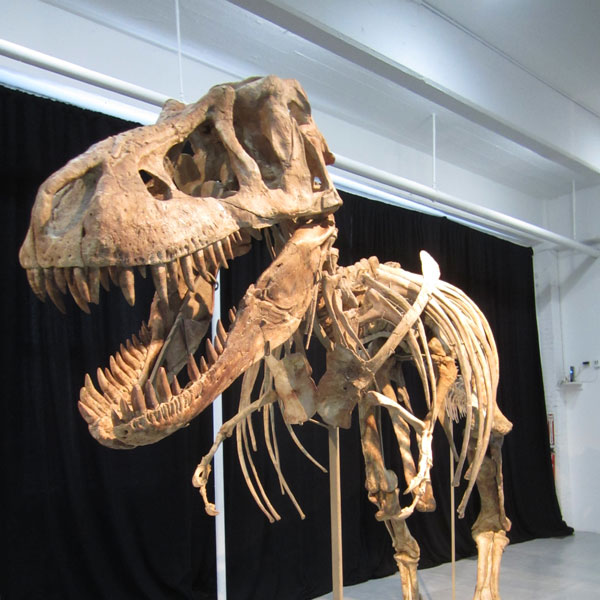Dino Fossil Dealer Involved in Black Market, Prosecutors Allege

Get the world’s most fascinating discoveries delivered straight to your inbox.
You are now subscribed
Your newsletter sign-up was successful
Want to add more newsletters?

Delivered Daily
Daily Newsletter
Sign up for the latest discoveries, groundbreaking research and fascinating breakthroughs that impact you and the wider world direct to your inbox.

Once a week
Life's Little Mysteries
Feed your curiosity with an exclusive mystery every week, solved with science and delivered direct to your inbox before it's seen anywhere else.

Once a week
How It Works
Sign up to our free science & technology newsletter for your weekly fix of fascinating articles, quick quizzes, amazing images, and more

Delivered daily
Space.com Newsletter
Breaking space news, the latest updates on rocket launches, skywatching events and more!

Once a month
Watch This Space
Sign up to our monthly entertainment newsletter to keep up with all our coverage of the latest sci-fi and space movies, tv shows, games and books.

Once a week
Night Sky This Week
Discover this week's must-see night sky events, moon phases, and stunning astrophotos. Sign up for our skywatching newsletter and explore the universe with us!
Join the club
Get full access to premium articles, exclusive features and a growing list of member rewards.
NEW YORK — A fossil dealer, who faces criminal charges related to illegally importing dinosaur fossils, had his first day in a New York federal criminal court on Monday (Oct. 22).
The fossil dealer, Eric Prokopi, was arrested at his home last week in Florida and released on bail. The Manhattan U.S. Attorney's office is charging Prokopiwith crimes related to the importation, receipt and sale of dinosaur fossils, mostly from Mongolia. In New York, Assistant U.S. Attorney Martin Bell argued the extent of Prokopi's alleged involvement in an "underground market" for dinosaur fossils and his potential earnings from the sale of fossils necessitated a substantial increase to his bail. Prokopi's attorney, Georges Lederman, argued that bail restrictions should be relaxed. Lederman pointed out that the publicity surrounding this case has made his client "radioactive" to potential clients.
“The notion that anybody would buy a single fossil from him at this point in time is absurd,” Lederman said.
U.S. Magistrate Judge Henry Pitman compromised, raising Prokopi's bail from $100,000 to $250,000, but released him from home detention as Lederman had requested.
Dino dispute
The criminal charges Prokopi faces are the latest development in an international ownership dispute over the fossilized remains of a Tarbosaurus bataar, an Asian relative to T. rex, which Prokopi restored and attempted to sell at auction in May. [Album: A Tarbosaurus Travels from Auction to Court Room]
Mongolian President Elbegdorj Tsakhia intervened, saying that the fossils were taken illegally from his country, a claim supported by paleontologists who examined the skeleton.
Get the world’s most fascinating discoveries delivered straight to your inbox.
Federal officials responded with an attempt to take possession of the Tarbosaurus fossilsthrough a property forfeiture lawsuit, which Prokopi has fought. If the U.S. government's civil case is successful, U.S. Attorney for the Southern District of New York Preet Bharara has said the Tarbosaurus fossils will be returned to Mongolia.
A Mongolian claim
Although the case is playing out in U.S. federal court, Mongolian law is an important element. Mongolian officials and the U.S. Attorney's office maintain that Mongolian law makes vertebrate fossils found within its borders state property, so exporting them to the United States is illegal. Prosecutors allege Prokopi smuggled fossils into the country by making false statements on customs forms. [Image Gallery: Dinosaur Fossils]
Meanwhile, Prokopi's attorneys in both the civil and criminal proceedings have contended that, in spite of paleontologists' reports, the federal government will not be able to prove the fossils came from Mongolia.. The attorneys also argue that Mongolian law is ambiguous on the matter, as well as inaccessible to an American like Prokopi. His civil attorneys have cited a lack of guidance regarding how customs forms should be properly completed.
The government added new fossils to its case during the bail discussion on Monday. Bell stated that after federal agents arrived at Prokopi's Gainesville, Fla., home on Wednesday (Oct. 17) with an arrest warrant, a truck arrived to deliver a 6-foot (1.82 meter), 400-pound (181 kilograms) crate containing fossils from a dinosaur called an Oviraptor mongoliensis, which could sell for more than $75,000.
The dinosaur's name refers to its Mongolian origin, and its coincidental arrival reinforces Prokopi's pattern of involvement in a market for dinosaur fossils taken illegally from Mongolia, Bell said.
Lederman countered that the federal government had no proof these fossils belonged to Prokopi. The owner, in fact, sent them so Prokopi could restore them; the restoration of fossils is a major source of business for Prokopi, Lederman said.
During the bail discussion, Bell also produced a handwritten note found in Prokopi's home. It discussed a second Tarbosaurus, which Prokopi hoped to sell, he said.
A black market in fossils?
Prosecutors have sought to portray Prokopi as participating in a black market for dinosaur fossils, going so far as to describe him in a press release as a "one-man black market in prehistoric fossils." On Monday, Bell said a lack of enforcement has allowed illegal sales to flourish, and, indeed, fossils of probable Mongolian origin are not difficult to find for salein auction catalogs or on eBay.
Prokopi has contested the prosecutors' portrayal. In a statement issued in June, about the time federal officials seized the Tarbosaurus he put up for auction, he wrote: "I'm just a guy in Gainesville, Florida trying to support my family, not some international bone smuggler like I have been portrayed by some in the media."
Prokopi is charged with one count of conspiracy to smuggle illegal goods, possess stolen property and make false statements; one count of smuggling goods into the United States; one count of interstate sale and receipt of stolen goods.
Follow LiveScience on Twitter @livescience. We're also on Facebook & Google+.
 Live Science Plus
Live Science Plus











